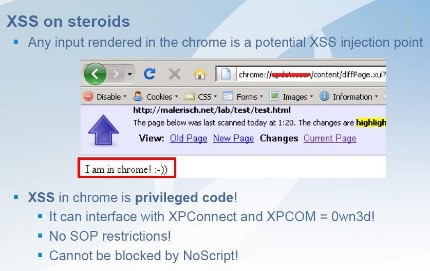Ruminating on Chrome


Regardless of its 'loser' image among the Silicon Valley edglings, Microsoft still has a remarkably resilient following in the business community. Try wresting Excel off a finance guy's desktop any time soon and see what happens. All the while Microsoft is still managing to stuff its coffers with cash at an amazing rate.
But I think Google's greatest challenge comes down to something I've been alluding to for some time. In a highly regulated world, the chances of half baked software with a cuddly 'Beta' moniker making it into the business market are pretty much zero. Despite their mantra of 'release early and iterate' Google doesn't live up to its own words except in fits and starts. In enterprise land, we complain bitterly about over promising and under delivering. Standing back, Google is not that much different except that it sort of delivers and then forgets about what it has put out. The big problem for Microsoft is one of perception. As Deep Jive Interests says:
The other thing that struck me is that Chrome could be crap — and it probably won’t, but it could be — and yet, the penetration of this product could be *huge*. Google owns almost 70% of the total search in North America. 70%! Even if no one else wrote about it, there was no blogger buzz, and no coverage that we all expect in tomorrow’s news … all it has to do is throw up some strategic links on its SERP’s, on its home page, and on all of its applications (since Chrome will exist for web applications it would be especially apropros), and this will still get thousands and thousands of downloads on the strength of Google’s web presence alone.
And that’s not even taking into the consideration some people think of Google as the Internet itself.
But it is not limited to general perceptions. I was interested in Larry's use of stats to illustrate the long term decline in IE's market share. According to a variety of sources on Wikipedia, IE is holding at around 74% this year with Firefox coming in at 20%. Janco Partners, the source Larry uses quotes 58% and 19% respectively. What is more ominous for Microsoft is the Janco numbers are remarkably similar to the IE/Netscape market split for 1996, with Netscape the market leader. A lot has changed in the intervening years and Microsoft has consolidated its hold on the business market by ensuring a near air tight lock between the operating system-browser-application triumvirate. That is something Google claims it is not doing by spoon feeding the blogerati with its open source roots message. Don't kid yourself. But don't worry either.
Even so, using webkit and dubbing Chrome as an open source initiative is smart because it tugs directly on the emotional heart strings of developers who have been slurping the open source Kool-Aid by the gallon the last few years. Good for Oracle fans, not so good for SAP lovers. The kicker is that the initial release will only be good for Windows users. No Mac or Linux versions for the moment. I guess even Google has to nod to market penetration reality. At least for now.